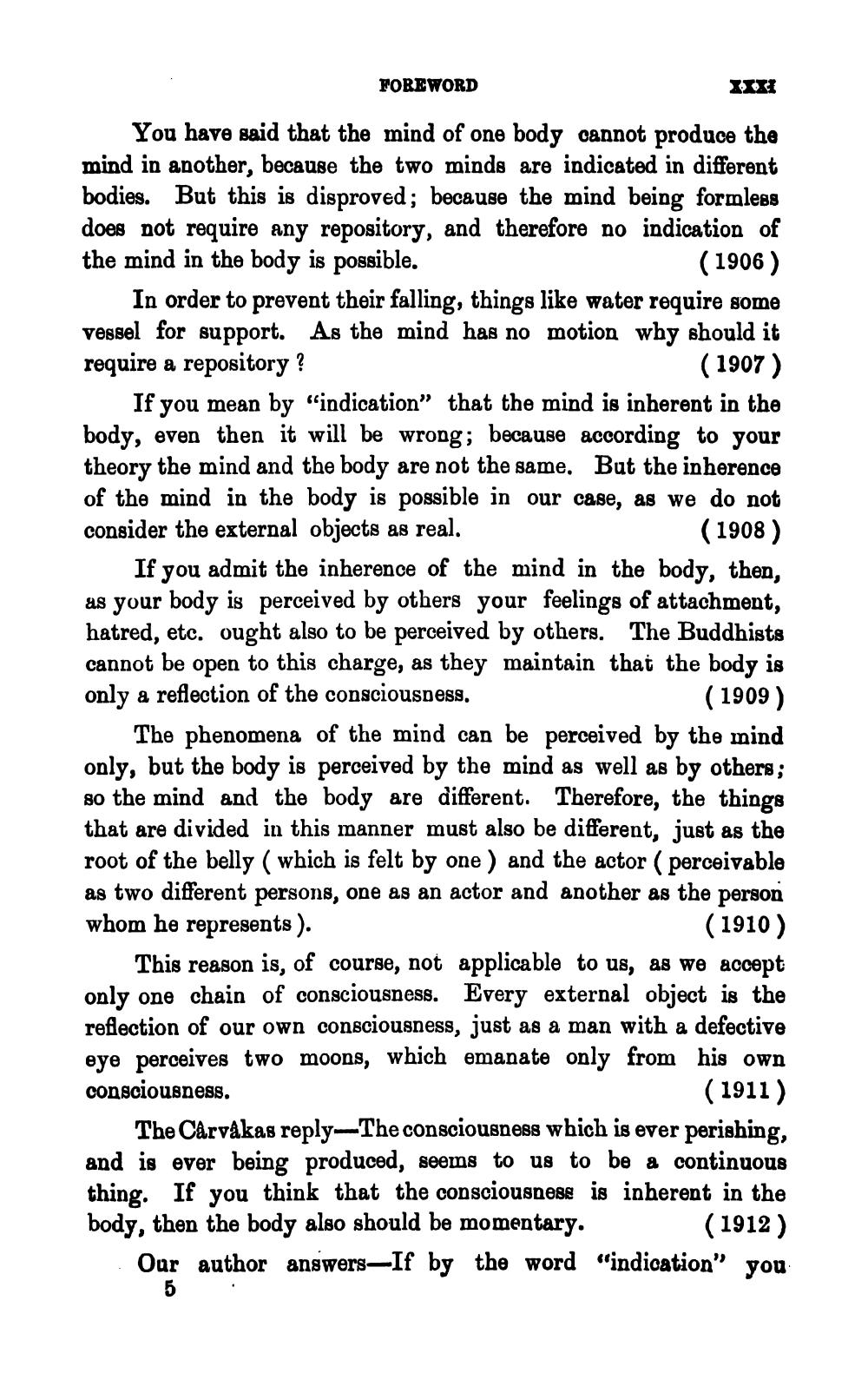________________
FOREWORD
You have said that the mind of one body cannot produce the mind in another, because the two minds are indicated in different bodies. But this is disproved; because the mind being formless does not require any repository, and therefore no indication of the mind in the body is possible.
(1906) In order to prevent their falling, things like water require some vessel for support. As the mind has no motion why should it require a repository?
(1907) If you mean by "indication” that the mind is inherent in the body, even then it will be wrong; because according to your theory the mind and the body are not the same. But the inherence of the mind in the body is possible in our case, as we do not consider the external objects as real.
(1908) If you admit the inherence of the mind in the body, then, as your body is perceived by others your feelings of attachment, hatred, etc. ought also to be perceived by others. The Buddhists cannot be open to this charge, as they maintain that the body is only a reflection of the consciousness.
(1909) The phenomena of the mind can be perceived by the mind only, but the body is perceived by the mind as well as by others; so the mind and the body are different. Therefore, the things that are divided in this manner must also be different, just as the root of the belly (which is felt by one ) and the actor ( perceivable as two different persons, one as an actor and another as the person whom he represents ).
(1910) This reason is, of course, not applicable to us, as we accept only one chain of consciousness. Every external object is the reflection of our own consciousness, just as a man with a defective eye perceives two moons, which emanate only from his own consciousness.
(1911) The Carvakas reply-The consciousness which is ever perishing, and is ever being produced, seems to us to be a continuous thing. If you think that the consciousnese is inherent in the body, then the body also should be momentary. (1912)
Our author answers—If by the word “indication" you




